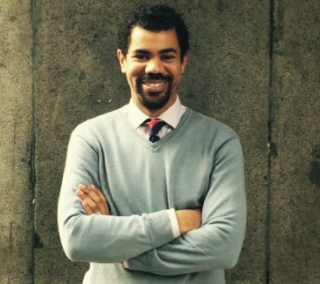AHS Quality and Safety Innovations Fellowship
Overview of the Fellowship
The goal of this one-year training program is to develop health care leaders capable of driving sustainable transformations and innovations in care delivery for vulnerable populations in alignment with high value, quality, safe, patient-centered, equitable, and effective patient and organizational processes and outcomes.
The Fellowship will prepare clinician innovators to identify key system issues, integrate decision-relevant data, and deliver innovative, system-wide change in complex health systems. Fellows will develop competencies and skills necessary to execute system-wide interventions to improve patient safety, quality, experience, and clinical operations in health care organizations, forming particular expertise in the safety net.
As part of the program, fellows will initiate, plan, and lead sustainable, multidisciplinary improvement projects at Alameda Health System. Through these projects, fellows will demonstrate facilitative leadership principles, employ strategic frameworks to address complex health care problems, utilize robust data-driven analytic solutions, guide operations using change management techniques, utilize quality and performance improvement principles to produce measurable improvement, ensure processes meet regulatory requirements, and champion best practices in medical care; reports directly to the Chief Quality Officer.

Tanvir Hussain, MD, MBA, MHS, MSc, FACP
Fellowship Director
Chief Quality Officer of Alameda Health System
Tanvir Hussain, MD, MSc, MHS, FACP, is an internist, quality executive and national policy expert, who has dedicated his career to identifying systems strategies that can improve the quality, safety, and value of patient care. Dr. Hussain’s clinical work as a general internist over the last decade has focused on the inpatient and outpatient care of socially and medically complex patients in disenfranchised communities domestically and internationally and on inspiring physician trainees to embrace these healthcare challenges. His quality career started at Johns Hopkins as a physician champion in ambulatory care and high-risk chronic disease management for Baltimore communities.
Most recently as a deputy chief quality & outcomes officer for Nebraska Medicine, he served as physician lead of quality, population health and value for an academic medical center comprised of two hospitals, a comprehensive cancer center and over forty ambulatory clinics. During his tenure, Nebraska Medicine rose from 63rd on Vizient’s national quality and safety scoreboard to 10th among all academic medical centers in the U.S. and remained five stars during his entire stay. He also led clinical integration for one of the largest accountable care organizations in the Midwest, helping improve its national performance on Medicare Shared Savings programs quality measures from the 35th percentile to top quartile.
He is regularly invited to speak at national forums on MACRA strategy and leveraging health information technology to decrease provider burden and improve patient care through EPIC electronic health record tools such as predictive analytics, dashboards and decision support. The youngest physician to serve on the Current Procedural Terminology Advisory Panel and American College of Physicians Medical Practice & Quality Executive Committee, Dr. Hussain provides expert opinion on national policy and regulations formed by the Center for Medicare & Medicaid Services and other governmental agencies.
Before his professional career, Dr. Hussain was a U.S. Fulbright fellow in the U.K, trained in internal medicine at Harvard’s Brigham & Women’s Hospital and completed clinical research, quality leadership and analytics fellowships at Johns Hopkins University School of Medicine.

Evan Rusoja, M.D. Ph.D.
Fellow 2020-2021
As Quality and Safety Innovations Fellow, Dr. Rusoja will be focusing on improving our ability to deliver equitable, effective, and high-value care to our patients and our community. He will be leading institution-wide efforts to improve quality and safety, investigating new ways to monitor complex data across the health system, and supporting the generation of decision-relevant, patient-centered performance metrics.
After graduating from Brown University, Dr. Rusoja was a Barbara Jordan Health Policy Scholar in the office of then Senator Barack Obama followed by a stint at the global health non-profit Global Health Through Education, Training, and Service. He went on to receive his MD from the Johns Hopkins School of Medicine and PhD from the Department of International Health at the Johns Hopkins Bloomberg School of Public Health where he focused on health system strengthening having completed projects in Afghanistan, Chile, and Uganda. During graduate school, he also co-founded the non-profit Empowerment Health which continues to support maternal and child health in Afghanistan. During Emergency Medicine residency here at Highland Hospital, Dr. Rusoja completed several quality improvement projects, continued his own research in Systems Thinking/Complex Adaptive Systems, and was a Chief Resident.
Having worked for over a decade in health systems around the world, Dr. Rusoja is excited to support our institution in meeting the unique challenges of our diverse community. He is particularly interested in using both qualitative and quantitative data to inform care at every level of the health system. He will be working with our Quality Department and institutional leaders over the year to grow our analytics capacity. In addition to his role as Quality and Safety Innovations Fellow, Dr. Rusoja will also serve as an Attending Physician in the Emergency Departments at Alameda Hospital, Highland Hospital, and San Leandro Hospital.
